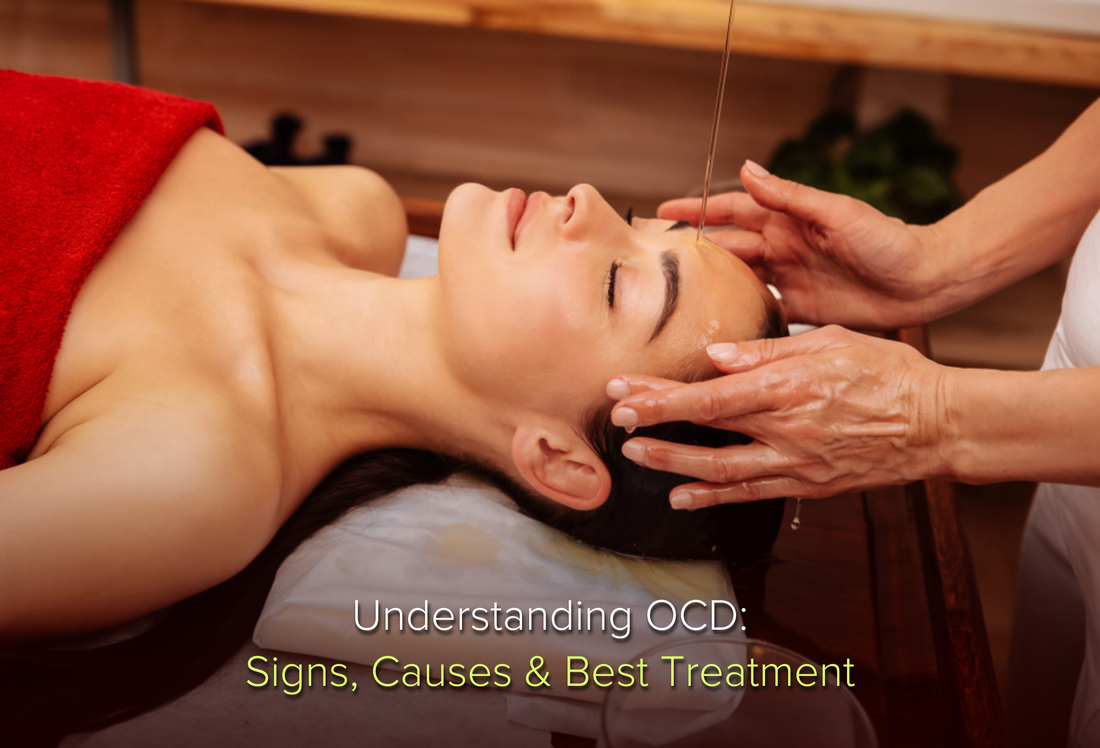
Zwangsstörungen verstehen: Anzeichen, Ursachen und beste Behandlung
Was ist eine Zwangsstörung (OCD)?
Zwangsstörung OCD steht für Zwangsstörung. OCD ist eine psychische Erkrankung, die durch anhaltende Gedanken (Obsessionen) und Verhaltensweisen (Zwänge) gekennzeichnet ist, die eine Person immer wieder wiederholen muss. Obsessionen sind hartnäckige, unerwünschte Ideen, Bilder oder Wünsche, die starke Ängste oder Unbehagen auslösen. Zwänge sind wiederkehrende Verhaltensweisen oder mentale Handlungen, zu denen sich eine Person als Reaktion auf eine Obsession gezwungen fühlt, meist um Ängste abzubauen oder ein gefürchtetes Ereignis oder Szenario zu vermeiden. Dieser Blog hilft Ihnen, mehr über diese Krankheit zu erfahren und warum Sie einen Arzt aufsuchen sollten. Rückzugsort für psychische Gesundheit.
Anzeichen und Symptome einer Zwangsstörung
Im Zusammenhang mit Obsessionen
Menschen mit Zwangsstörungen haben häufig anhaltende, unerwünschte Gedanken, Visionen oder Wünsche. Zu diesen häufigen Obsessionen gehören:
- Angst vor Verunreinigungen oder Keimen.
- Bedenken hinsichtlich Ordnung, Symmetrie oder Genauigkeit
- Aufdringliche Gedanken, sich selbst oder anderen zu schaden
- Unerwünschte sexuelle Ideen oder Visionen
Ähnlich wie Zwänge
Menschen mit Zwangsstörungen führen repetitive Aktivitäten oder mentale Handlungen aus, um die durch ihre Zwangsvorstellungen ausgelöste Angst zu lindern. Zu den häufigsten zwanghaften Verhaltensweisen gehören:
- Übermäßiges Händewaschen und Reinigen
- Überprüfung und erneute Überprüfung von Schlössern, Geräten und Schaltern
- Zählen, Sätze wiederholen oder Elemente in einer bestimmten Reihenfolge anordnen
- Beten oder stilles Zählen
Die Ursachen von Zwangsstörungen verstehen
Biologische Faktoren
Forschungsergebnissen zufolge können Störungen der Gehirnchemie und -funktion bei der Entstehung von Zwangsstörungen eine Rolle spielen. Zwangsstörungen werden häufig mit einem Ungleichgewicht des Serotoninspiegels in Verbindung gebracht, einem Neurotransmitter, der an der Stimmungskontrolle beteiligt ist.
Umweltfaktoren
Stressige Lebenssituationen wie Traumata oder große Veränderungen im Leben können Zwangsstörungen auslösen oder verschlimmern. Darüber hinaus können erlernte Gewohnheiten von Familienmitgliedern oder Gleichaltrigen die Entwicklung einer Zwangsstörung bei gefährdeten Menschen beeinflussen.
Genetische Faktoren
Untersuchungen deuten darauf hin, dass Zwangsstörungen eine erbliche Komponente haben. Personen mit einer familiären Vorbelastung mit Zwangsstörungen oder damit verbundenen Erkrankungen entwickeln diese häufiger selbst.
Beste Behandlungsmöglichkeiten für Zwangsstörungen
Kognitive Verhaltenstherapie (CBT)
Die kognitive Verhaltenstherapie (KVT) ist die wirksamste Therapieform bei Zwangsstörungen. Dabei geht es darum, unlogische Gedanken und Überzeugungen zu identifizieren und zu konfrontieren. Außerdem werden Betroffene schrittweise Situationen ausgesetzt, die ihre Zwangsvorstellungen auslösen, während zwanghaftes Verhalten vermieden wird.
Versuchen Sie, Zwangsstörungen mit dem ayurvedischen Ansatz zu bekämpfen
Es gibt viele Behandlungsmöglichkeiten für Zwangsstörungen, doch die meisten davon beinhalten hochwirksame Medikamente mit zahlreichen Nebenwirkungen. Deshalb kann ein ayurvedischer Ansatz hilfreich sein, um diese Krankheit zu bekämpfen. Laut Ayurveda, einem alten indischen Medizinsystem, ist Zwangsstörung eine Manifestation körperlicher und geistiger Ungleichgewichte. Nach ayurvedischen Prinzipien wird Zwangsstörung hauptsächlich durch eine Störung des „Vata“-Doshas (Energie, die mit Bewegung und Ungleichgewicht verbunden ist) im Gehirn und Nervensystem verursacht. Daher zielt der ayurvedische Behandlungsansatz darauf ab, das Dosha-Gleichgewicht wiederherzustellen und die allgemeine Gesundheit zu fördern. Ein ayurvedischer Wellnesszentrum für psychische Gesundheit Suchen Sie nach etwas, wonach Sie suchen sollten. Unser Retreat für psychische Gesundheit nutzt einen ayurvedischen Ansatz, um ein tiefes Gefühl der Ruhe zu vermitteln. Einige unserer ayurvedischen Ansätze zur Linderung von Zwangsstörungen umfassen:
- Ernährungs umstellungen
- Pflanzliche Heilmittel
- Yoga und Meditation
- Ayurvedische Massagen
- Panchakarma-Behandlung
Fazit
Zwangsstörung ist eine komplexe und schwierige Erkrankung, die die Lebensqualität erheblich beeinträchtigen kann. Mit der richtigen Diagnose und Behandlung können viele Menschen mit Zwangsstörungen jedoch lernen, mit ihren Symptomen umzugehen und ein erfülltes Leben zu führen. Wer die Symptome, Ursachen und Behandlungsmöglichkeiten von Zwangsstörungen versteht, kann proaktiv Schritte zur Genesung und zum Wohlbefinden unternehmen. Auch der Besuch eines Rückzugsort für psychische Gesundheit kann sich als Wendepunkt auf Ihrem Weg zur Befreiung von der Zwangsstörung erweisen.
Häufig gestellte Fragen zu Zwangsstörungen
- Kann eine Zwangsstörung vollständig geheilt werden?
Obwohl Zwangsstörungen nicht heilbar sind, zeigen viele Menschen durch Therapie und/oder Medikamente eine deutliche Besserung. Man kann versuchen, das Phänomen mit ayurvedischen Methoden zu bekämpfen.
- Ist eine Zwangsstörung eine seltene Erkrankung?
Nein, Zwangsstörungen sind eine relativ häufige Erkrankung, von der 1–2 % der Weltbevölkerung betroffen sind.
- Kann sich eine Zwangsstörung später im Leben entwickeln?
Ja, Zwangsstörungen können in jedem Alter auftreten, am häufigsten treten sie jedoch im späten Teenageralter oder im frühen Erwachsenenalter auf.
- Was führt dazu, dass sich Zwangsstörungen verschlimmern?
Stressige Lebensereignisse, genetische Veranlagung und mangelnde Therapietreue können die Symptome einer Zwangsstörung verschlimmern.
- Können Änderungen des Lebensstils helfen, die Symptome einer Zwangsstörung zu lindern?
Ja, bestimmte Änderungen des Lebensstils, wie etwa die Aufrechterhaltung eines gesunden Lebensstils, das Anwenden von Techniken zur Stressreduzierung und das Vermeiden von Substanzen, die Angstzustände verstärken, können Menschen in Verbindung mit Therapie und Medikamenten dabei helfen, ihre Zwangssymptome in den Griff zu bekommen.

